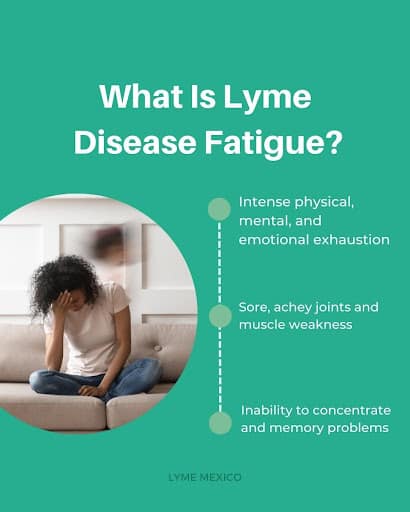
If you’ve ever felt completely drained for days or even weeks without knowing why? You’re not alone. Fatigue can come from many causes, but when it’s caused due to Lyme disease, it can be especially tough to deal with.
Lyme, caused by a tick bite, brings a range of symptoms, and fatigue is one of the most common. It’s not the kind of tiredness that goes away with a good night’s sleep, it’s much deeper and harder to manage.
Let’s explore how Lyme and fatigue are connected, and what you can do to feel better.
What Causes Fatigue in Lyme Disease?
- The cause of fatigue in Lyme disease is because your immune system works overtime to fight off the infection caused by the Borrelia burgdorferi bacteria. As the immune system uses most of your energy to fight you may feel fatigue and exhausted.
- When you get infected by bacteria, it starts multiplying inside your body. Your immune system fights back by creating inflammation, but that inflammation also drains your energy. In addition to that, Lyme illness can mess with your sleep and affect the way your body produces energy.
- Over time, if the disease isn’t treated, the fatigue symptoms can get worse and harder to manage.
Does Chronic fatigue last?
- Chronic fatigue caused due to lyme can last even after treatment. This is referred to as Post-Treatment Lyme Disease Syndrome (PTLDS), and it’s common in some patients.
PTLDS happens when the inflammation and damage caused by the infection stays longer in your body. Even though the bacteria are gone, the after-effects can take months or even years to go away. People with PTLDS often deal with fatigue, brain fog, and other symptoms, which can make recovery feel slow. Managing these symptoms usually involves a mix of medical care and lifestyle changes to help your body heal.
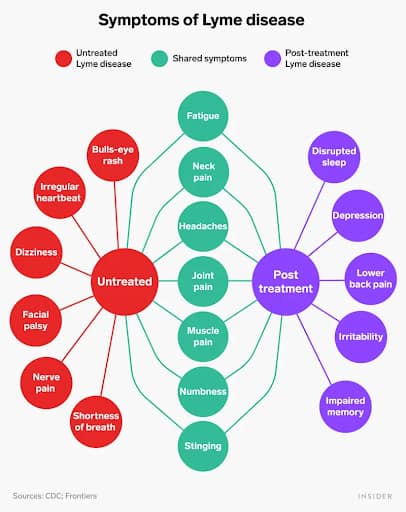
How Does Lyme Disease Fatigue Feel Different from Other Types of Fatigue?
Lyme disease fatigue feels different from other types of fatigue as it is more intense and unpredictable than regular tiredness. Even doing simple tasks may become difficult and is combined with other symptoms like joint pain, headaches, and brain fog.
Lyme disease fatigue doesn’t go away with rest. Some days you might feel okay, and other days you might feel completely wiped out. This rollercoaster makes it stand out from other causes of chronic fatigue like anemia or depression.
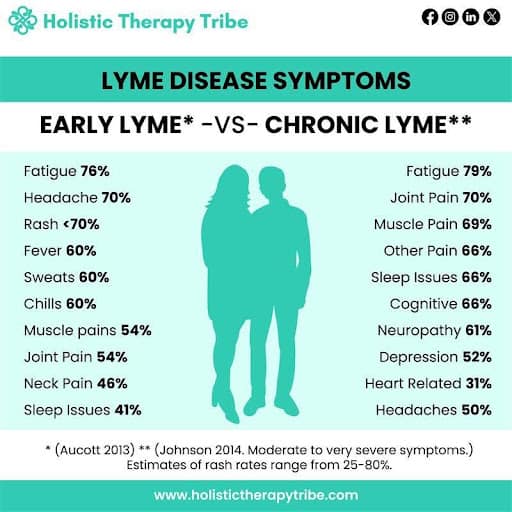
What is the Best Way to Manage Lyme Disease Fatigue Symptoms?
- The best ways to manage Lyme disease fatigue symptoms are focussing on getting good sleep, eating healthy, and taking care of your body with light activity.
- Improving your sleep routine step by step. Go to bed at the same time every night and avoid screens before bed. To support your recovery include anti-inflammatory foods in your diet, like leafy greens, fish, nuts, and berries.
- Gentle exercise like walking or yoga can also help improve your energy over time. Don’t push yourself too hard—listen to your body. Also, talk to your doctor about checking for other issues, like vitamin deficiencies, that might make your fatigue symptoms worse.
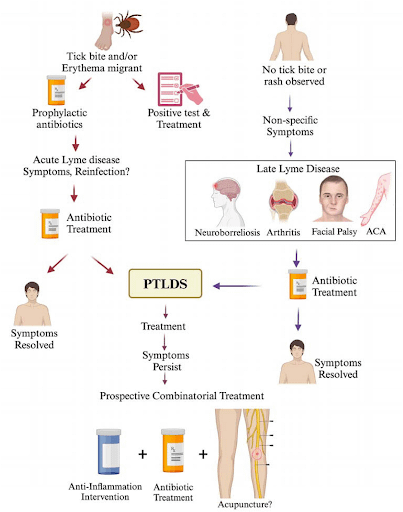
What Are the Early Lyme Disease Fatigue Symptoms?
Early Lyme disease fatigue symptoms include feeling. These often show up with flu-like symptoms like fever, chills, and joint aches.
In the beginning, fatigue might not seem like a big deal, but it can quickly get worse if the disease isn’t treated. Pay attention to other signs, like the bullseye-shaped rash that many people with Lyme illness develop.
Catching it early is key to preventing long-term problems like chronic fatigue.
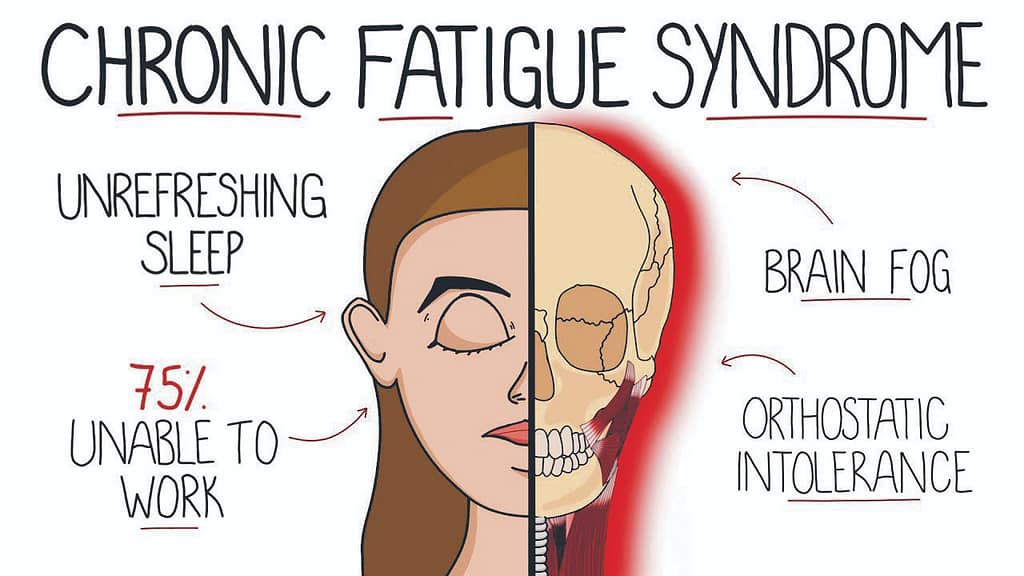
Are There Natural Ways to Fight Lyme Disease Fatigue?
- Yes, natural remedies like eating anti-inflammatory foods, taking herbal supplements, and managing stress can help with fatigue from Lyme.
- Healthy foods such as leafy greens, berries, and turmeric are well known foods to fight against inflammation and give you more energy.
- Herbal supplements like ashwagandha and Rhodiola can make it easier for your body to handle stress and feel less tired.
- To get good sleep and relaxation it is good to get involved in doing gentle exercises like Yoga, meditation, and deep breathing. Take advice from your doctor while considering these natural remedies for the best results.
Conclusion
- Fatigue as a Lyme disease symptom can be really frustrating, but don’t lose hope. Knowing the cause and trigger for the fatigue feeling and making changes accordingly can help you.
- Eating healthy, getting better sleep, and taking care of yourself step by step can make you feel much better over time.
- If you’re struggling with chronic fatigue and Lyme disease, don’t hesitate to ask for help. Speak to your physician and find the root cause and treat them appropriately. Recovery takes time, but with the right plan, you can feel like yourself again.
References
- Lantos PM. Chronic Lyme disease. Infect Dis Clin North Am. 2015 Jun;29(2):325-40. Link.
- Evison J, Aebi C, Francioli P, et al. Lyme disease part 2: clinic and treatment. Rev Med Suisse. 2006;2(60):925–8. [in French] [PubMed] [Google Scholar]
- M E Baarsma, Joppe W Hovius, Persistent Symptoms After Lyme Disease: Clinical Characteristics, Predictors, and Classification, The Journal of Infectious Diseases, Volume 230, Issue Supplement_1, 15 August 2024, Pages S62–S69, Link
- Aucott JN, Crowder LA, Kortte KB. Development of a foundation for a case definition of posttreatment Lyme disease syndrome. Int J Infect Dis 2013; 17:e443–9. Google Scholar | Crossref | PubMed
- Cerar D, Cerar T, Ružić-Sabljić E, Wormser GP, Strle F. Subjective symptoms after treatment of early Lyme disease. Am J Med 2010; 123:79–86. Google Scholar | Crossref | PubMed.


